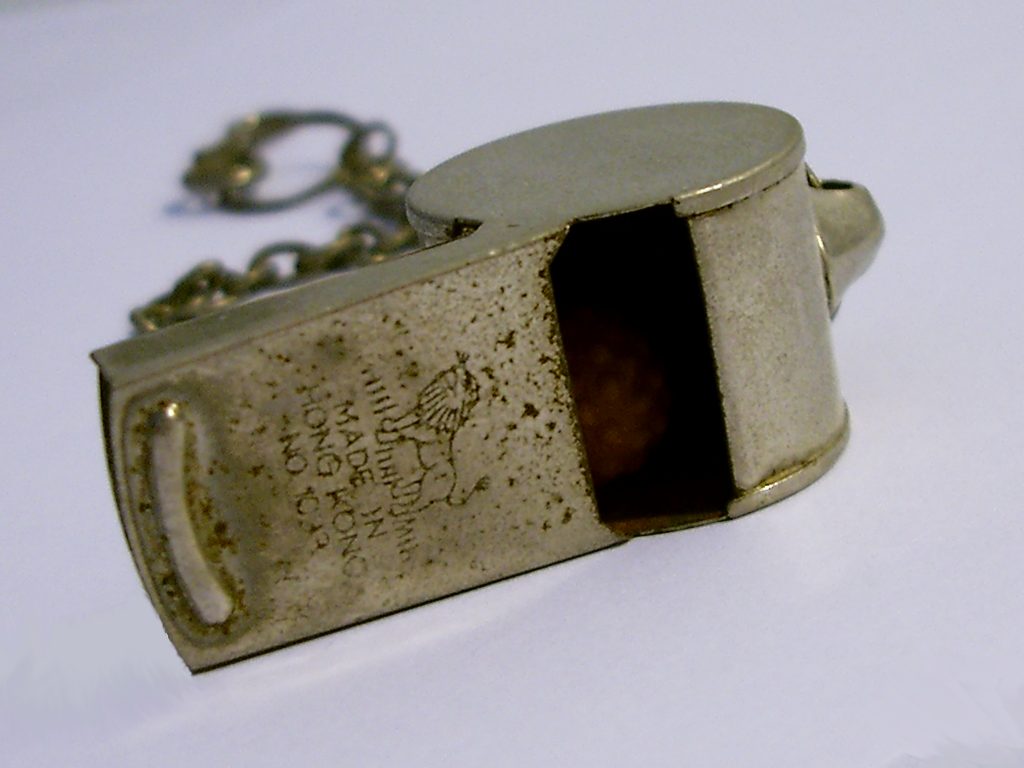
Justin Richardson worked for Axion Logistics, LLC, in Baton Rouge. Axion promoted Richardson to general manager within two months of hiring him. Shortly thereafter, Richardson became aware that two Axion employees were fraudulently billing an Axion client. Richardson reported these acts up the chain of command, including Axion’s president, its CEO and its CFO.
At one point, Axion’s CEO requested that Richardson not to tell anyone about the matter. Axion’s CEO and president allowed the illegal practice when they refused to inform the client. Subsequently, Richardson expressed to the CFO that Richardson would notify the client if Axion was unwilling to do so. A few weeks thereafter, Axion management criticized Richardson’s job performance. The president then terminated Richardson’s employment within a month, on the grounds that Richardson “was not a good fit” for the company.
Richardson sued Axion under the Louisiana whistleblower statute. He alleged that Axion wrongfully terminated his employment because Richardson reported fraudulent billing practices to Axion’s executives and because Richardson threatened to disclose the fraud to Axion’s client.
Axion argued that it did not engage in any unlawful acts, but that it was rogue employees who had acted fraudulently. In regards to terminating Richardson’s employment, Axion argued that Richardson’s allegations did not show a direct connection to the firing and that retaliatory firing was at best circumstantial. In turn, Axion moved to dismiss Richardson’s lawsuit.
The law requires a court when deciding whether to dismiss a case, to accept a plaintiff’s well-pleaded facts as true, and to view such facts in favor of the plaintiff. See Ashcroft v. Iqbal, 556 U.S. 662 (2009). Facts are considered well-pleaded when they provide more than labels and conclusions and more than a recitation of the alleged wrongdoing. In regards to Louisiana’s whistleblower law, La. R.S. 23:967, a plaintiff must present facts that, if accepted as true, would show a violation by the employer, and not simply by employees.
Under the Louisiana whistleblower law, the plaintiff must show that the employer violated the law; that the employee advised the employer of this violation; that the employer refused to participate in the alleged prohibited practice; and that the employer retaliated against the employee after he or she refused to participate in the unlawful practice, or after the employee threatened to disclose it.
The Court of Appeal noted that Richardson presented enough facts to make it plausible that Axion violated the law, that the Axion knew of this wrongdoing, and that Axion fired Richardson because of Richardson’s threats. The Court cited Richardson’s allegations that he informed the president and the CEO, and that they refused to take action. The Court then noted that Richardson threatened to inform the client of the fraud if Axion did not do so. Thus, together, the allegations allow for the plausible inferences that Axion authorized unlawful conduct.
The Court of Appeal then had to determine if the firing was retaliatory. Richardson alleged that Axion executives criticized Richardson’s experience and qualifications after Richardson threatened to reveal the fraud to the client, and after sharing evidence of the fraud with the CEO. Considering that Axion terminated Richardson’s employment only weeks after Richardson’s meetings with the CFO and CEO, the Court made the inference that the termination resulted from Richardson’s whistleblowing. In support of its reasoning, the Court cited a prior Louisiana court opinion which noted that most employers do not admit to a retaliatory motive and that most employee-plaintiffs have to rely on circumstantial evidence to prove retaliatory termination.
The Court ruled that Richardson’s allegations met the requirements of the whistleblower law. It rejected Axion’s request to dismiss the case and allowed it to proceed to trial. Axion knew of the wrongdoing, it allowed it, and then plausibly terminated Richardson’s employment because Richardson threatened to inform Axion’s client.
In making your claims under the whistleblower lawsuit, it is critical that you fulfill all of the requisite legal elements. Good labor lawyers know the protections provided under the whistleblower’s statute and will help you present evidence in support of your claims.
Written by Berniard Law Firm Blog Writer: Issa Al-Jaweel
Additional Sources: JUSTIN SHANE RICHARDSON VERSUS AXION LOGISTICS, L.L.C.
Additional Berniard Law Firm Articles on Louisiana WhistleBlowers Statute: 5th Circuit Throws Out Whistleblower Case Against Premier Rehabilitation Center in Monroe
